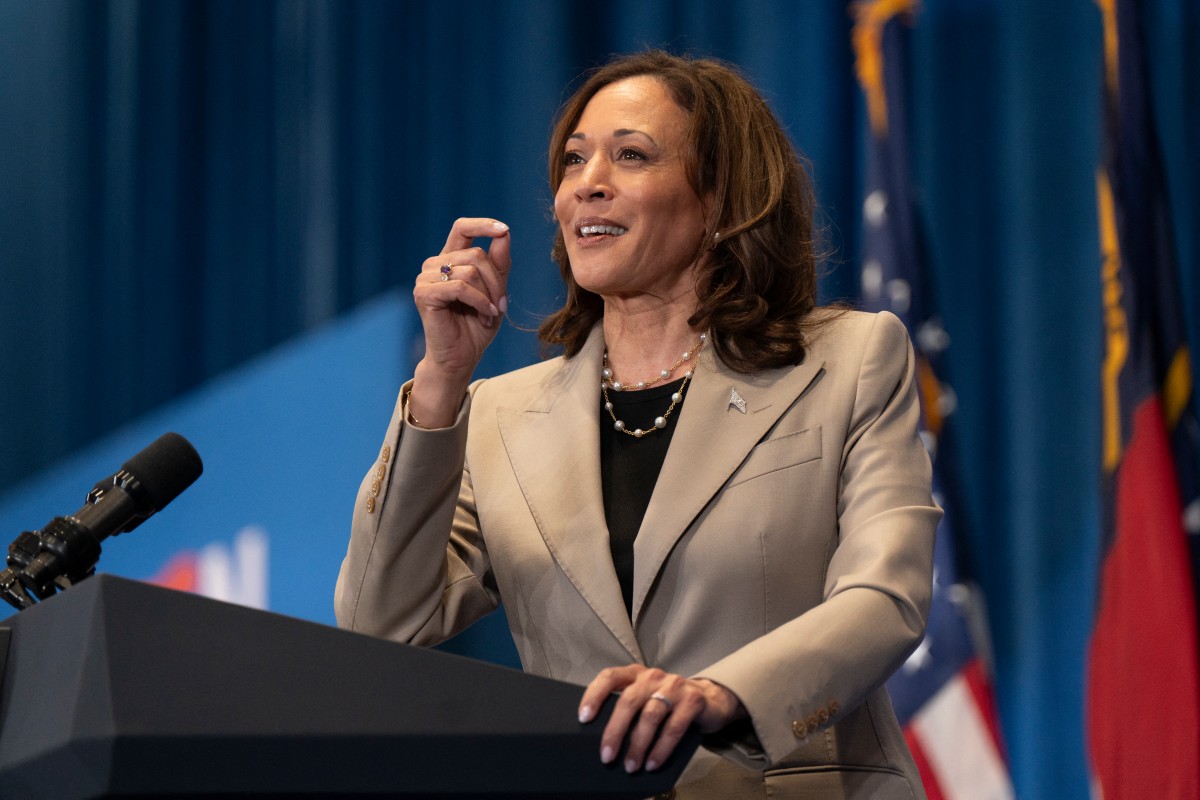
403
Sorry!!
Error! We're sorry, but the page you were looking for doesn't exist.
‘60 minutes’ publishes two dissimilar responses from Harris to same enquiry
(MENAFN) The CBS program "60 Minutes" has sparked debate after airing two distinct answers from U.S. Vice President Kamala Harris to the same question regarding Israeli Prime Minister Benjamin Netanyahu's receptiveness to U.S. input amid ongoing tensions in the Middle East. The question, posed by interviewer Bill Whitaker, sought to gauge Harris's perspective on whether Netanyahu was listening to the U.S. during a period of escalating conflict.
In the preview segment that aired during the "Face the Nation" program on Sunday, Harris's response suggested a nuanced acknowledgment of U.S. influence in the region. She stated, “Well Bill, the work that we have done has resulted in a number of movements in that region by Israel that were very much prompted by, or a result of, many things, including our advocacy for what needs to happen in the region.” This answer indicated an emphasis on diplomatic efforts and U.S. involvement.
However, when the full "60 Minutes" episode was broadcast the following day, Harris's answer was notably altered to a more concise statement. In this version, she asserted, “We are not going to stop pursuing what is necessary for the United States to be clear about where we stand on the need for this war to end.” This change not only shifted the focus but also removed much of the context present in the preview response.
The alteration has drawn significant attention, leading the campaign of former President Donald Trump, who is now a Republican presidential nominee, to call on CBS and the producers of "60 Minutes" to release the full, unedited interview with Harris. This demand reflects broader concerns regarding media transparency and the potential implications of editorial decisions on public perception, especially in the context of a presidential campaign.
The discrepancy between the two responses raises questions about the editorial process in news programming and how narratives are shaped in politically charged environments. As the election season progresses, such incidents are likely to become focal points in discussions about media representation and political accountability. The situation underscores the critical role of media in influencing public discourse and the importance of maintaining integrity in journalistic practices.
In the preview segment that aired during the "Face the Nation" program on Sunday, Harris's response suggested a nuanced acknowledgment of U.S. influence in the region. She stated, “Well Bill, the work that we have done has resulted in a number of movements in that region by Israel that were very much prompted by, or a result of, many things, including our advocacy for what needs to happen in the region.” This answer indicated an emphasis on diplomatic efforts and U.S. involvement.
However, when the full "60 Minutes" episode was broadcast the following day, Harris's answer was notably altered to a more concise statement. In this version, she asserted, “We are not going to stop pursuing what is necessary for the United States to be clear about where we stand on the need for this war to end.” This change not only shifted the focus but also removed much of the context present in the preview response.
The alteration has drawn significant attention, leading the campaign of former President Donald Trump, who is now a Republican presidential nominee, to call on CBS and the producers of "60 Minutes" to release the full, unedited interview with Harris. This demand reflects broader concerns regarding media transparency and the potential implications of editorial decisions on public perception, especially in the context of a presidential campaign.
The discrepancy between the two responses raises questions about the editorial process in news programming and how narratives are shaped in politically charged environments. As the election season progresses, such incidents are likely to become focal points in discussions about media representation and political accountability. The situation underscores the critical role of media in influencing public discourse and the importance of maintaining integrity in journalistic practices.

Legal Disclaimer:
MENAFN provides the
information “as is” without warranty of any kind. We do not accept
any responsibility or liability for the accuracy, content, images,
videos, licenses, completeness, legality, or reliability of the information
contained in this article. If you have any complaints or copyright
issues related to this article, kindly contact the provider above.


















Comments
No comment